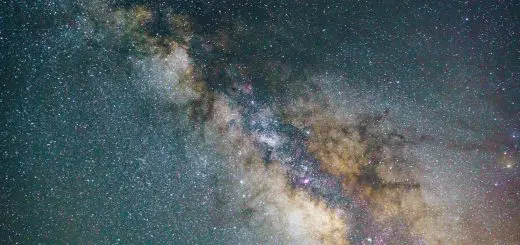Can We Ever Solve the Biggest Mysteries of the Universe?

Looking for more amazing products? Check out our online store and explore our collection here! Happy shopping!
Before diving in, please note: This post is for informational purposes only. If you’d like to know more about how we approach topics, feel free to check out our friendly Disclaimer Page.
Hey there, amazing readers! 
We’re committed to delivering quality posts, and your support (even just sticking around despite the ads) means everything to us. So, bear with us, and thanks for helping us keep the good vibes rolling. Now, on to the fun stuff!
TRANSLATE BUTTON AT THE END OF THE ARTICLE
A Quick Overview
Can we ever solve the biggest mysteries of the universe?
This question feels like a riddle wrapped in an enigma, doesn’t it?
We are on a quest to explore the cosmos, driven by curiosity and wonder.
Scientists, philosophers, and dreamers alike have pondered these mysteries for centuries.
From the elusive nature of dark matter to the possibility of extraterrestrial life, the universe is a vast tapestry of unknowns, both thrilling and daunting.
In this article, we’ll take a closer look at various cosmic puzzles and the progress we’ve made in understanding them.
Buckle your seatbelts as we embark on this exhilarating journey!
Unraveling the Universe: A Journey Through Time and Space
The universe is like a grand storybook, filled with chapters that reveal the origins of everything we know.
It began with the Big Bang, a colossal explosion that sparked the universe into existence approximately 13.8 billion years ago.
This event set in motion the expansion of the cosmos, creating galaxies, stars, and planets.
As we delve deeper, we discover that the universe is not static; it’s dynamic and evolving.
We see stars being born in nebulae, while others reach their end, collapsing into black holes.
This dance of creation and destruction creates a beautiful yet complex cosmic environment.
The tools we use to explore this vastness are constantly improving.
Telescopes have evolved from simple lenses to powerful instruments like the Hubble and the upcoming James Webb Space Telescope.
These advancements allow us to see light from billions of years ago, offering a glimpse into the universe’s distant past.
Not only do we look outward, but we also explore our own planet’s history.
The geological records and fossil remains help us understand how life emerged and evolved.
The story of the universe is intertwined with our own, reminding us that we are part of something much larger.
As we navigate this cosmic odyssey, we inquire: What lies beyond our observable universe?
Could there be other civilizations out there?
These questions drive our exploration of space and time.
The Biggest Questions: What Mysteries Keep Us Wondering?
The universe is a treasure trove of mysteries that spark our imagination and curiosity.
Here are some of the biggest questions that continue to baffle scientists and enthusiasts alike:
What is dark matter, and how does it shape galaxies?
What is dark energy, and why is the universe expanding at an accelerating rate?
Are we alone in the universe, or is there other intelligent life?
How did the universe begin, and what came before the Big Bang?
How do black holes work, and what happens inside them?
Each of these questions could fill volumes with speculation and research.
Explore the Path to Spirituality and Enlightenment – Start Here.
As we dive into each mystery, we find layers of complexity and wonder.
The answers may be elusive, but that’s the beauty of the quest.
With every discovery, we inch closer to understanding our cosmic home.
Dark Matter and Dark Energy: The Hidden Forces at Play
Dark matter and dark energy are two of the most perplexing components of the universe.
Despite making up about 95% of the universe’s total mass-energy content, they remain largely invisible.
Dark matter acts like a cosmic glue, holding galaxies together.
Without it, galaxies would fly apart due to their rapid rotation.
We can’t see dark matter directly, but we can infer its presence by observing how galaxies move.
Think of it as a ghostly presence that shapes the cosmos from the shadows.
Dark energy, on the other hand, is responsible for the universe’s accelerating expansion.
It behaves like an anti-gravity force, pushing galaxies apart.
Scientists don’t fully understand what dark energy is, but it’s a hot topic in cosmology.
Some theories suggest it’s a property of space itself, while others propose it could be a new type of fundamental energy.
As we study these mysteries, I often think of the universe as a giant puzzle.
Each piece we discover brings us closer to a complete picture, yet many pieces remain stubbornly out of reach.
The Nature of Black Holes: Secrets of the Cosmic Void
Black holes are among the most fascinating and terrifying phenomena in the universe.
These regions of spacetime have such intense gravitational pull that nothing, not even light, can escape them.
The formation of black holes usually occurs when massive stars exhaust their nuclear fuel.
They collapse under their weight, compressing all their mass into an infinitely dense point known as a singularity.
The boundary surrounding this singularity is called the event horizon, which marks the point of no return.
Despite their ominous reputation, black holes can teach us a lot about the laws of physics.
For instance, the study of black holes has led to significant progress in understanding general relativity.
The famous physicist Stephen Hawking even proposed that black holes could emit radiation, now known as Hawking radiation, which challenges conventional ideas about their permanence.
But what happens inside a black hole?
This question remains largely unanswered.
Our current understanding of physics breaks down at the singularity, leading some scientists to speculate about alternate dimensions or even time travel.
Are We Alone? The Search for Extraterrestrial Life
The question of whether we are alone in the universe is perhaps the most profound of all.
With billions of stars and countless planets, the odds seem favorable for extraterrestrial life.
Yet, after years of searching, we haven’t found definitive evidence.
Scientists are exploring various avenues to answer this question.
Missions like Kepler and TESS are identifying exoplanets in the habitable zone, where conditions might support life.
Additionally, projects like SETI (Search for Extraterrestrial Intelligence) scan the skies for signals from intelligent civilizations.
The vastness of the universe makes it hard to believe we’re the only intelligent beings.
I often wonder about what forms these extraterrestrial lives might take.
Are they similar to us, or do they exist in forms we can’t even fathom?
Despite the lack of direct evidence, some scientists argue that we may simply not be looking in the right way.
Perhaps we need new technologies or new approaches to searching for life.
The cosmic frontier is calling, and the answer could change everything we know.
The Big Bang Theory: How Did It All Begin?
The Big Bang theory is the leading explanation for how the universe began.
It posits that about 13.8 billion years ago, all of space was concentrated in a hot, dense point.
Then, in a fraction of a second, it expanded exponentially, creating the fabric of space and time.
This theory is supported by evidence such as the cosmic microwave background radiation, which is the afterglow of the Big Bang.
It’s like the universe’s baby picture!
By studying this radiation, we can learn about the early universe’s conditions.
As we explore the Big Bang, we confront deeper questions.
What caused the Big Bang?
What existed before it?
Some theories suggest that our universe might be just one of many, each with its own Big Bang event.
These inquiries keep our minds buzzing.
The more we learn about the universe’s origins, the more questions arise.
One thing is for sure: the universe is full of surprises, waiting for us to discover them.
Quantum Physics: The Strange World of the Very Small
Quantum physics takes us into a bizarre realm where the usual rules of logic seem to break down.
At the quantum level, particles can exist in multiple states at once, a phenomenon known as superposition.
Think of Schrödinger’s cat: it’s both alive and dead until we observe it.
This strange behavior doesn’t just spark the imagination; it also has practical applications.
Quantum computing, for instance, harnesses the principles of quantum mechanics to process information in ways that classical computers cannot.
But quantum physics raises more questions than it answers.
The concept of entanglement suggests that particles can be interconnected in ways that defy our understanding of space and time.
It feels like a page out of a science fiction novel.
As we delve deeper into quantum mechanics, we find ourselves grappling with philosophical implications.
What does it mean for reality?
How much do we truly know, and how much is still waiting to be uncovered?
The Fate of the Universe: How Will It All End?
Just as we ponder the beginning of the universe, we must also consider its ultimate fate.
Several theories attempt to explain how the universe might end, each more intriguing than the last.
Big Crunch: The universe could stop expanding and start collapsing back into a singularity.
Big Freeze: The universe may continue to expand indefinitely, leading to a cold, dark, and empty cosmos.
Big Rip: If dark energy continues to strengthen, it could eventually tear apart galaxies, stars, and even atoms.
These scenarios sound like the plots of epic sci-fi movies, don’t they?
Each theory presents a different vision of our universe’s destiny, and scientists continue to debate which one is most likely.
The idea of the universe ending is both daunting and fascinating.
It reminds us of our own mortality and the transient nature of existence.
It also drives us to cherish our time here, exploring the cosmos and seeking understanding.
Time Travel: Fact or Fiction? Exploring the Possibilities
Time travel has long been a popular trope in science fiction, but could it have a basis in reality?
According to Einstein’s theory of relativity, time is not a constant; it can be affected by gravity and speed.
Theoretically, if you traveled close to the speed of light, you could experience time more slowly than those left behind on Earth.
This phenomenon is known as time dilation.
So, in a sense, we are all time travelers, moving through time at different rates.
However, traveling backward in time poses more challenges.
Some solutions to Einstein’s equations suggest the possibility of closed time-like curves, which could allow for time travel to the past.
But these concepts involve hypothetical constructs like wormholes and exotic matter, making them purely speculative for now.
While the idea of time travel excites the imagination, it also raises paradoxes.
What happens if you meet your past self?
Would you change history?
These questions add layers of complexity to the topic.
As we explore time travel, we confront fundamental questions about causality and the nature of time itself.
It’s a fascinating realm that continues to capture our collective curiosity.
Multiverse Theory: Are There Infinite Universes Out There?
Multiverse theory suggests that our universe is just one of many, each potentially having different laws of physics and constants.
This concept stretches the imagination to its limits.
If true, it means there could be countless versions of reality, each playing out different scenarios.
Some theories propose that these universes can exist parallel to ours, while others argue they could be entirely separate and unobservable.
The idea of a multiverse raises tantalizing questions: Are there other versions of me living different lives?
The implications of multiverse theory are profound.
It challenges our understanding of existence and reality.
If every possibility exists somewhere, then what does that say about choice and fate?
While multiverse theory is still speculative, it’s gaining traction among physicists.
As we continue to explore the cosmos, we may one day find evidence supporting or refuting this mind-boggling idea.
Technology and Innovation: Tools for Cosmic Exploration
Advancements in technology have transformed our ability to explore the universe.
From the invention of the telescope to the deployment of space probes, each leap in innovation has brought us closer to understanding the cosmos.
Telescopes like the Hubble Space Telescope have provided breathtaking images of far-off galaxies, while missions like Voyager have traveled beyond the solar system, sending back invaluable data.
These tools have allowed us to map the universe and study its contents in unprecedented detail.
Moreover, developments in artificial intelligence and machine learning are enhancing our ability to analyze vast datasets.
These technologies help us identify patterns and make predictions, accelerating our discovery process.
Collaboration among nations and institutions has also fueled cosmic exploration.
Projects like the Large Hadron Collider and the upcoming James Webb Space Telescope represent collective efforts to push the boundaries of what we know.
The future of cosmic exploration is bright, and I can’t wait to see what discoveries await.
The Future Awaits: What Lies Ahead for Cosmic Discoveries?
The future of our cosmic journey is filled with promise and potential.
As technology advances, we stand on the brink of monumental discoveries that could reshape our understanding of the universe.
Upcoming missions like the James Webb Space Telescope will allow us to explore the universe’s first galaxies and study exoplanet atmospheres.
The results could provide insights into the formation of stars, galaxies, and possibly even life.
Furthermore, advancements in quantum computing could revolutionize data analysis in astronomy.
These powerful computers could sift through massive datasets, identifying patterns and anomalies that elude traditional methods.
As we continue to ask questions and push the boundaries of knowledge, we must also engage with the philosophical implications of our discoveries.
What does it mean for humanity?
How do we fit within the vast expanse of the cosmos?
The journey ahead is exciting!
With every new discovery, we gain not just knowledge but also a deeper appreciation for our place in the universe.
Conclusion
Can we ever solve the biggest mysteries of the universe?
The short answer is yes and no.
Each mystery we decipher often leads to new questions, creating an endless cycle of inquiry and discovery.
But that’s what makes this journey so exhilarating!
As we continue to explore the cosmos, we uncover profound truths about existence, time, and the nature of reality.
Each small piece of knowledge enriches our understanding and inspires future generations to look up at the stars and wonder.
So, let’s keep asking questions, seeking answers, and enjoying the ride through this incredible universe we call home!

The Enlightenment Journey is a remarkable collection of writings authored by a distinguished group of experts in the fields of spirituality, new age, and esoteric knowledge.
This anthology features a diverse assembly of well-experienced authors who bring their profound insights and credible perspectives to the forefront.
Each contributor possesses a wealth of knowledge and wisdom, making them authorities in their respective domains.
Together, they offer readers a transformative journey into the realms of spiritual growth, self-discovery, and esoteric enlightenment.
The Enlightenment Journey is a testament to the collective expertise of these luminaries, providing readers with a rich tapestry of ideas and information to illuminate their spiritual path.
Our Diverse Expertise
While our primary focus is on spirituality and esotericism, we are equally passionate about exploring a wide range of other topics and niches 

To ensure we provide the most accurate and valuable insights, we collaborate with trusted experts in their respective domains 
Our blog originally focused on spirituality and metaphysics, but we’ve since expanded to cover a wide range of niches. Don’t worry—we continue to publish a lot of articles on spirituality! Frequently visit our blog to explore our diverse content and stay tuned for more insightful reads.
Hey there, amazing reader! 
Check out our store here and take a peek at some of our featured products below! Thanks for being awesome!













